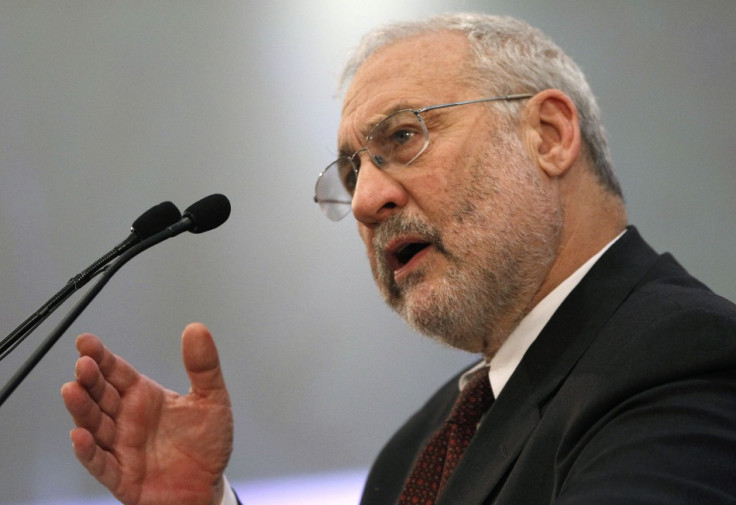Nobel-prize winning economist calls Trump tax 'avoider-in-chief'
President-elect's history doesn't hold out hope to curb tax avoidance, says Joseph Stiglitz.

American Nobel prize winning economist Joseph Stiglitz says that he doesn't hold out hope for the United States to curb tax evasion and money laundering with president-elect Donald Trump at the helm.
"When your president is avoider-in-chief, it's hard to have confidence in where we are going to go," Stiglitz told the European Parliament Wednesday (16 November). There Stiglitz advocated reforms to the EU as well as the international tax system.
At the beginning of October the New York Times revealed that in 1995 president-elect Trump claimed a $916m loss on his income tax returns, a deduction that would allow him to avoid paying taxes for up to 18 years. During the 2016 campaign Trump refused to reveal his income tax records, as is tradition, despite being able to do so.
When cornered on the issue by Hillary Clinton during the first presidential debate, Trump said not paying taxes "makes me smart."
Stiglitz, who was questioned by the EU's Panama Papers committee rebutted this idea. "There is a need for public investment" driven by tax revenues, he said, and "the returns in public investment are enormously high." He called businesses using tax havens to avoid paying their taxes "unconscionable."
Economist Gabriel Zucman, who studies tax havens, has tallied up how much cash is hidden around the world and estimates there is about $7.6 trillion hidden by companies and individuals globally. That's about 8% of the world's wealth.
Throughout his campaign Trump spoke about the failure of globalisation to deliver increasing wealth to poor and middle-income Americans. Stiglitz agreed, and said tax havens are "one of the reasons that globalization has not worked" and that "when people see this darker side of globalization, they get even more upset with it."
The Panama Papers, released by the International Consortium of Investigative Journalists in April 2016, drew attention to offshore tax avoidance. It showed the inner workings of Panamanian law firm Mossack Fonseca as it helped wealthy individuals and powerful politicians store tax-free money overseas.
While not all clients of the firm were guilty, Mossack Fonseca was slapped with the largest fine ever delivered by the British Virgin Islands' financial regulator on 15 November. Half of its 240,000 shell companies were incorporated in the UK overseas territory. The Panama Papers, which saw the leak of more than 11 million legal documents, has lead to criminal and tax investigations around the world.
Trump campaigned on a platform of reducing tax rates for US corporations. However, Richard Murphy, a professor of International Political Economy at City, University of London, said he believes Trump "will change the laws that have encouraged US companies to keep their non-US earnings tax free outside the USA in places like Cayman and Bermuda" — thus returning the money to US government coffers.
"Secrecy is part of the darker side of globalisation, from hiding money and money laundering to tax evasion, it all undermines the functioning of our societies," Stiglitz said Wednesday. "I hope that there will be a greater resolve in Europe for dealing with it."
© Copyright IBTimes 2025. All rights reserved.





















